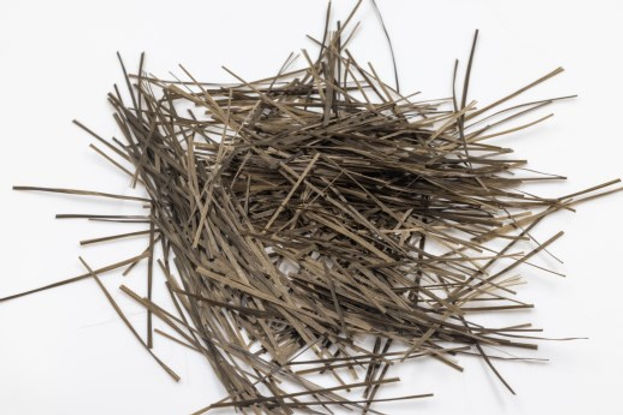
Basalt Chopped Fiber
Mixing Basalt Chopped Fibers into Polymers and Concrete for Enhanced Performance
Basalt Chopped Fibers can be seamlessly integrated into both polymers and concrete, offering a multitude of benefits that enhance their performance. Here's a look at the features, benefits, and specifications of Basalt Chopped Fibers:
Features & Benefits:

High Tensile Strength
Basalt Chopped Fibers significantly boost the tensile strength of polymers and concrete, making them more robust and durable

Alkali Resistance
These fibers are resistant to alkali in concrete and do not require special coatings for protection.

Wide Temperature Range
: Basalt Chopped Fibers can withstand extreme temperatures, from as low as -260°F to as high as 1,500°F, without compromising their integrity.

Electrical Non-Conductivity
They do not conduct electricity or induce electrical fields, making them suitable for various applications.

Water Resistance
Basalt fibers do not absorb or wick water, ensuring that the material remains unaffected by moisture

Microbial Resistance
They do not harbor bacteria or microbial growth, making them ideal for applications where hygiene is crucial
Fatigue Resistance: Basalt fibers exhibit good fatigue resistance, contributing to the longevity of the materials in which they are used.

Specifications
-
Basalt Chopped Fiber Diameter: Ranging from 13 microns to 20 microns.
-
Basalt Chopped Fiber Lengths: Available in lengths from 3mm to 90mm.
-
Sizing (Binder) for Concrete and Asphalt Applications: Basalt Chopped Fibers are available with sizing (binder) suitable for use with materials such as Portland cement and asphalt.
Sizing (Binder) for Resins: They can also be incorporated into various resin types, including thermoplastic, epoxy, polyester, PVA, and phenolic.
Basalt fibers have unique properties that set them apart. Unlike other fibers, they do not provide a habitat for bacteria or microbial growth. This is particularly advantageous in applications where corrosion is a concern, such as municipal sewers, as the fibers do not support the growth of bacteria that could lead to concrete degradation.
Additionally, due to their low thermal conductivity, basalt fibers reduce the deposition of salts and paraffins inside pipes, offering protection against corrosion and clogging.
Basalt composite components, such as pipes and rods, are created using unidirectional basalt reinforcement. These components possess high specific strength, making them 9.6 times stronger than steel. They also exhibit resistance to aggressive media and high electrical insulating properties, making them suitable for specialty applications like insulators for high-voltage power lines.
For asphalt applications, the inclusion of Basalt Chopped Fibers allows for the laying of thinner panels while still maintaining durability. This results in significant savings on asphalt and a 30-50% longer lifespan for the asphalt surface.
Furthermore, basalt composite pipes excel in transporting corrosive liquids and gases. They offer thinner panels with reduced cracking, ensuring that fine molded details remain intact without chipping or breaking.
In summary, Basalt Chopped Fibers offer a versatile and effective means to enhance the strength, durability, and performance of polymers and concrete in
